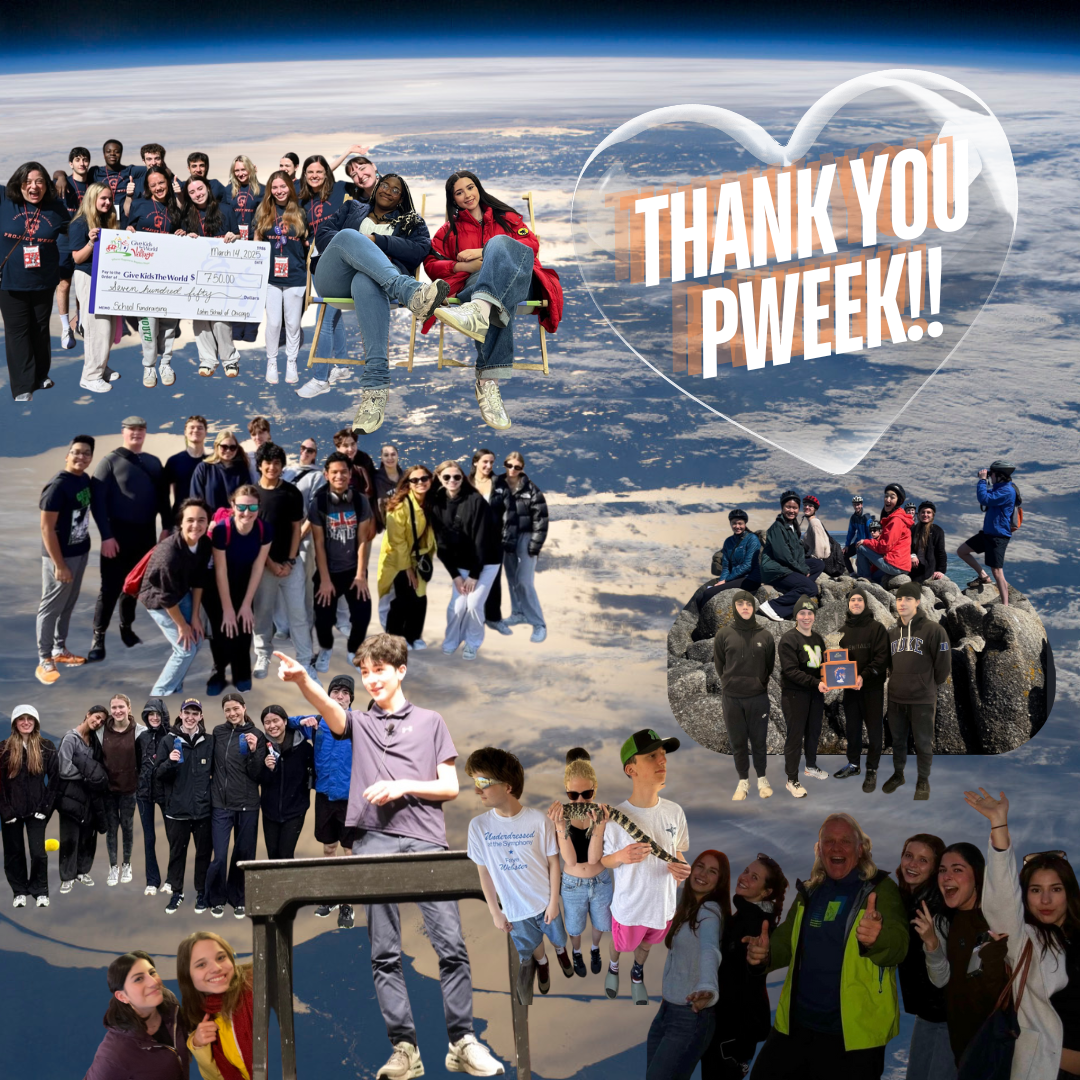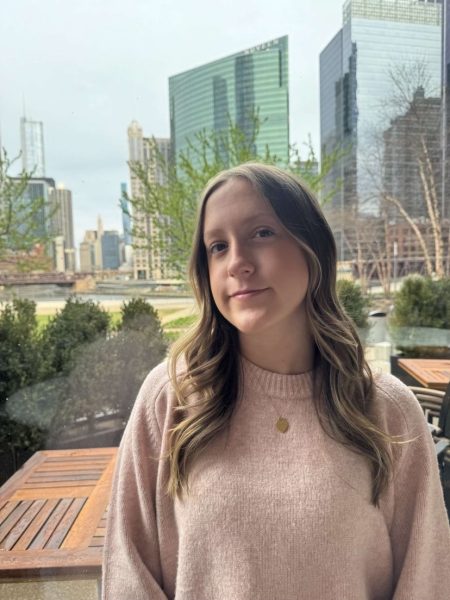On an international Project Week trip, surrounded by roaring waterfalls and immersed in the dense tropical rainforest, students embarked on a canyoneering challenge in Bajos Del Toro, Costa Rica, where they hiked, climbed, rappelled, and leaped through demanding terrain, building leadership and risk management skills.
Back in the States, speeding down a sparkling snow-covered trail in Minnesota behind a team of trained, talented huskies, Latin students soaked up the opportunity to explore the ins and outs of dog sledding.
At home in Chicago, eager students and parents packed the first floor of the Wrigley Theater, only for the audience to fall silent before erupting in applause as a student from the Magic in Chicago Project Week chose an audience member's card out of a pile.
Every year, students enter March with one thing on their minds: Project Week.
Project Week is dedicated to helping students and faculty explore outside the classroom and expand their learning experiences in entirely new environments. Since 1972, Project Week has been a vital aspect of Latin’s curriculum, offering an incomparable experience that other private schools in the city have yet to match. However, many take this uncommon opportunity for granted.
Every year, without fail, immediately after the announcement of Project Week assignments, students get déjà vu. Complaints of placements, claims of a rigged selection system, and cries over how students will not be going abroad with their closest friends seep into the halls and Learning Commons.
Despite the annual uproar, we believe Project Week is and will continue to be one of the most exceptional and important experiences students receive at Latin. Therefore, students should spend more time soaking in the experience rather than complaining about how their in-town project wasn’t as fun as an out-of-town project.
Most high schools don’t offer this kind of opportunity, and few other schools have similar experiences that match the depth and detail of Latin’s Project Week. This year, there were 16 in-town and 19 out-of-town options for students to choose from, along with four exchange options, including Madrid, Spain; Paris, France; Berlin, Germany; and Cape Town, South Africa.
During the Project Week ranking process, students often overlook the significant amount of resources, connections, and overall planning required to create these experiences. Teachers often plan their proposals for their project a year in advance and then revise and work with the Project Week leadership to iron out every detail.
This means budgeting costs for the number of students, coordinating with outside organizations, taking on the responsibility and liability of chaperoning high schoolers, posting updates to social media, and planning every activity, meal, transportation, housing, and travel arrangement. On top of that, teachers have to complete their grade reports before the Friday leading into Project Week.
Every year, students rank their top eight Project Week options, with a requirement of at least four in-town projects. In recent years, students have felt that in-town Project Weeks do not provide the same exciting experiences and rare adventures as out-of-town ones.
Going into a Project Week with a narrow point of view is like closing doors before you even walk through them. It is crucial to enter the week with an open mind and a positive attitude. In-town Project Weeks allow for an in-depth exploration of your own city and identity through uncovering new passions and skills that will last long after Project Week, just like any out-of-town project would.
For four years, students have had the opportunity to deepen their knowledge about an area, appreciate a different culture, and collaborate with a new group of people, which is an experience that students may not get without Project Week.
Throughout the week, students build new friendships with people they may not regularly interact with. Going into the week with no prior connections generates an opportunity to find new friends and build stronger bonds with current classmates.
We urge every student to take a moment out of their schedule to thank their Project Week leaders. The mountains of work and unwavering dedication teachers put into planning and executing these complex weeks make the experience possible, so a simple gesture of appreciation can go a long way.
However, being an engaged and respectful Project Week participant doesn’t stop at saying thank you. Actions speak louder than words. So, during your next Project Week, keep some key points in mind: Be an active participant, even when you aren’t super interested. Be the person who volunteers to help with something or the person who starts a conversation with someone they don’t know. And finally, simply be curious about whatever niche topic or wild adventure you are diving into.
We implore you to live up to the Latin mission statement before, during, and after this week: Pursue passions and lead lives of purpose and excellence. Project Week provides a gateway to living that statement.
So next year, when project assignments load onto RomanNet, we ask students to not be so quick to judge their assignment before even experiencing it. Instead, be glad you’re not sitting in a classroom and commit to meet new classmates, explore new places, and soak in your Project Week experience.



















































